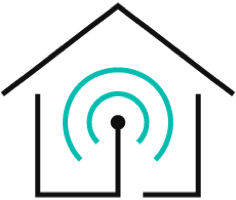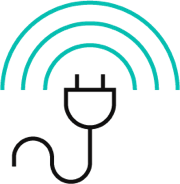For a constant supply of water for domestic use, a residential water pump is frequently required. A home water pump can help you achieve your goals, whether you want to water your yard, receive water from a borehole, or take a shower with good pressure. However, choosing the best household water pump for your needs can be challenging because many different types of domestic water pumps are available.
EVVR has been at the forefront of developing AI-based smart home appliances and gadgetry. Regarding the most effective and hassle-free systems, including EVVR Energy Monitoring Smart Plug, EVVR Center, EVVR Center Lite, and more!
- Features of IoT Smart Water Pumps
- Benefits of Smart Water Pumps For Homes & Businesses
- How to Find The Best Water Pump
- EVVR Energy Monitoring Smart Plug & Relay Makes Your Pumps Smarter
Features of IoT Smart Water Pumps
Pipeline Monitoring
Pipe bursts typically happen for the reasons listed below.
- Iced pipes
- Extra weight
- Corrosion due to water pressure
A real-time pipeline monitoring system was required due to the growing pipeline damage in the water management system. IoT Water monitors the pipeline by preventing frozen and leaking pipe bursts thanks to the development of inexpensive and low-cost sensors.
Not only that, but the sensors also give alarms regarding temperature and leaks, keeping the pipeline from reaching the point where it would burst.
Money-Saving
Assets can now be connected and monitored in real time, even in remote regions, thanks to the development of low-cost, low-energy sensors for IoT Water. Monitoring the status of assets like pipelines, pumps, and other equipment is now simple. By providing warnings, it is also simple to determine which assets in the entire water management system require maintenance or replacement and where.
Water Quality Monitoring
The monitoring of water quality is made easier by IoT sensors integrated into IoT solutions. IoT Water is the most reliable water quality sensing solution that connects to the cloud for real-time monitoring. It is embedded with several sensors that measure most water quality parameters. The IoT Smart Water Management considers some essential criteria, including pH, dissolved oxygen (DO), oxidation-reduction potential, salinity measurement, conductivity measuring, and TDS measuring.
Preventive Insights
Being proactive is preferable to being reactive. Whether the pipes are underground or above ground, water aids in their preventive maintenance. Huge amounts of data are gathered from the sensors, transmitted to the cloud, and then forwarded to the appropriate administrator so they may take action before any interruption happens.
Water pumps can suck a lot of power and add to the utility bills. However, you can connect your water pump with EVVR Energy Monitoring Smart Plug & Relay. It will allow you to control the appliance and get power consumption insights remotely.

Benefits of Smart Water Pumps For Homes & Businesses
IoT water management solutions assist governments, businesses, and regular customers in achieving efficiency and sustainability goals. The Internet of Water is a brand-new notion that today's IoT in this industry already converts into. It necessitates linking all the systems and participants in the water supply chain, including water sources, treatment facilities, industrial water management systems, distribution facilities, utility and clean energy companies, and consumers, among others, and providing key information on the condition of water resources and supply chain equipment to decision-makers.
IoT is arguably the best technology for providing the supply chain with essential procedures, data applications, and tools.
Transparency
Improving the transparency of each step in the water supply chain is one of the main advantages of smart water management utilizing IoT. Various stakeholders can learn vital information about their resources and system performance thanks to the data gathered across the supply chain. They can then decide how to enhance their operations with knowledge.
Quick Responses
A further advantage of incorporating intelligent water management systems is the capacity to recognize or even foresee problems and take timely action to reduce harm.
Optimized Use of Human Resources
IoT water management solutions allow managers to automate some tasks entirely or in part while maximizing labor usage. The level and scope of automation depend on the industry and particular company requirements.
Cost-Saving
Significant savings are realized through automation, efficient human resource use, data-driven planning, and proactive equipment maintenance and resource management. The long-term reduction of operational expenses is one of the factors driving water corporations to investigate the use of IoT in water management.
Sustainability
Not just in the field of smart water, but in every industry, from energy to construction to logistics, sustainability goals are at the core of many retrofit and innovation initiatives. Smart water usage technologies are now recognized as a means of achieving multiple environmental objectives, such as decreased carbon footprint, pollution, and, ultimately, water preservation, in addition to cost savings and increased efficiency.
One way to make your living smart and sustainable is to get the EVVR Energy Monitoring Smart Plug & Relay. It can help you get all the water you need without adding to the costs through control with a smartphone application.
How to Find The Best Water Pump
For a constant supply of water for domestic use, a residential water pump is frequently required. A home water pump can help you achieve your goals, whether you want to water your yard, receive water from a borehole, or take a shower with good pressure. However, choosing the best household water pump for your needs can take time because many different types of domestic water pumps are available.
I'd like to discuss how to choose domestic pumps and what aspects you need to consider.

Decide The Type of Pump
The kind of pump you choose will depend on the source of your water supply and the required output. The primary types of water pumps are as follows:
- Pumps fully immersed in a borewell's or an open well's water are called submersible pumps.
- Compressor pumps can be utilized in locations with loose soil and transfer water where water production is low.
- Centrifugal pumps lift water; however, self-priming regenerative pumps can perform the same without priming. They may transfer water from a below-ground tank to an above-ground tank.
- Centrifugal jet pumps: These produce a consistent and powerful underground water flow. Depending on the depth, you can purchase a centrifugal deep well jet or a shallow well jet pump. These pumps have a maximum lifting depth of 25 feet.
- Pumps circulating hot or cold water in the home include inline circulation pumps. They are typically built alongside a water heater so that hot water may be distributed to various rooms in the house.
- Booster pumps are utilized when a pressurized water flow is necessary, such as in restrooms or lawns.
Go Through Specifications
You must review the specifications after choosing the type of pump you wish to purchase. This is a crucial component since your home water pump must be able to supply you with enough water at the necessary pressure. You should look at the following specifications and understand what they mean:
- The flow rate, the discharge rate, is expressed in liters per minute (LPM). This will be the volume of water pushed over a predetermined period. It pumps more quickly as it rises. A range of 100–200 LPM is typically adequate for a family.
- Head Distance: In this context, "head" refers to the discharge head or the vertical distance you pump water. The head range must be within this range for the water pump to successfully pump water. Meters (m) are used to measure this.
- Kilowatts (kW) and horsepower (HP) are units of measurement for the electrical power that the pump will utilize when it is operating. Most pumps require between 0.5 and 1.5 HP, while some, like inline circulation pumps, only need 0.16 HP. This will vary based on the pump's other features, but power increases as head range and water volume grow.
Check Pump Warranty
Considering the warranty options when purchasing a residential water pump would be best. You should contact a specialist who can assist you if something goes wrong with your water pump because they have motors, and their structure can be complicated. All household pumps made by Crompton have a 12-month warranty. If you experience any issues with our domestic pumps, you may contact our help because we also have service centers in every state.
EVVR Energy Monitoring Smart Plug & Relay Makes Your Pumps Smarter
EVVR Energy Monitoring Smart Plug & Relay does not require any introduction. Since it has come to the scene, you can rely on it to cover all the bases. You can have all the water supply you need without paying the extra on utilities. It has a smartphone application that lets you connect with the plug anytime and make the best of your experience. You can seamlessly connect with it through Apple's HomeKit. So, what are you waiting for? Grab one today and enjoy smart living now!
















